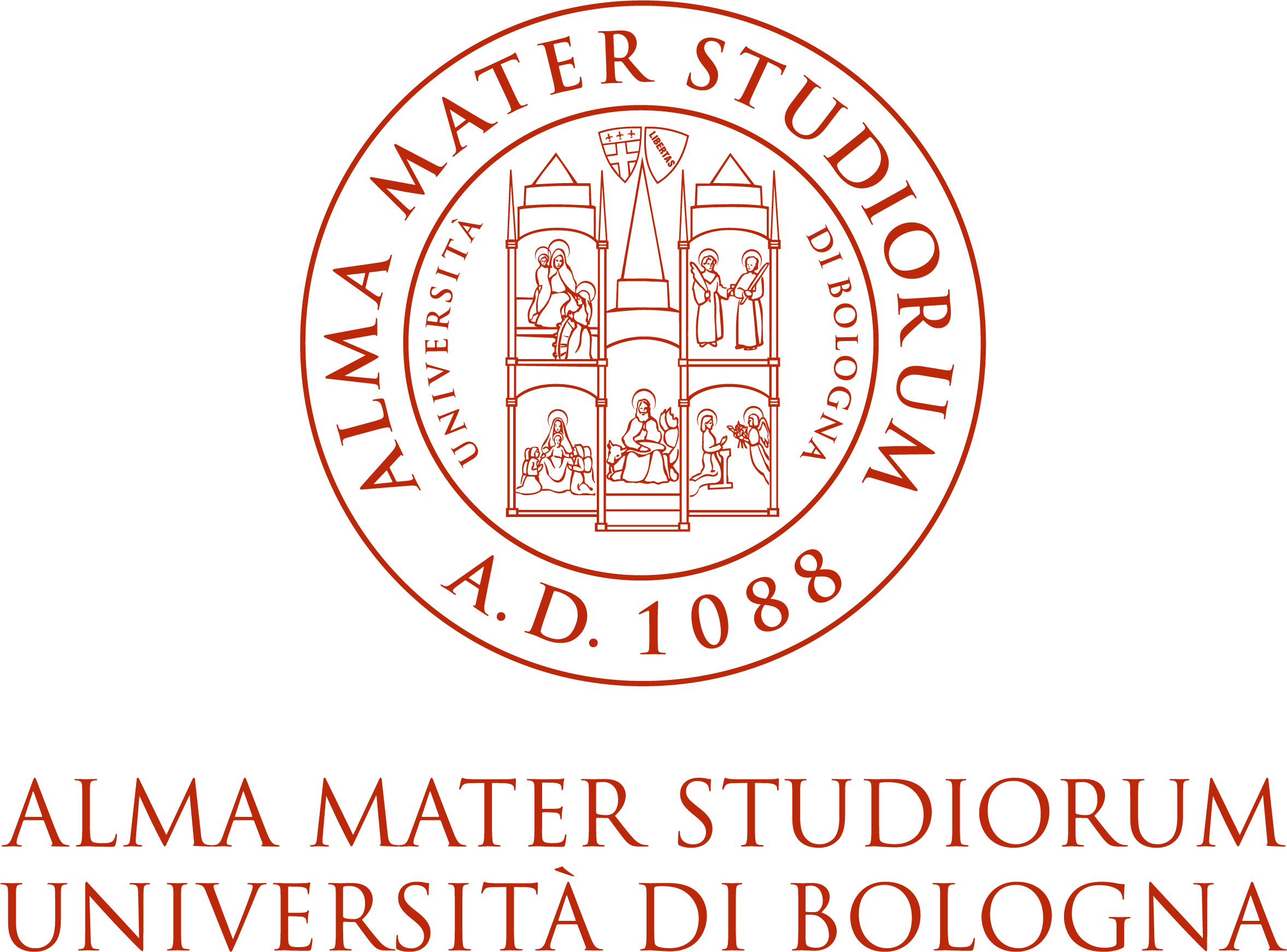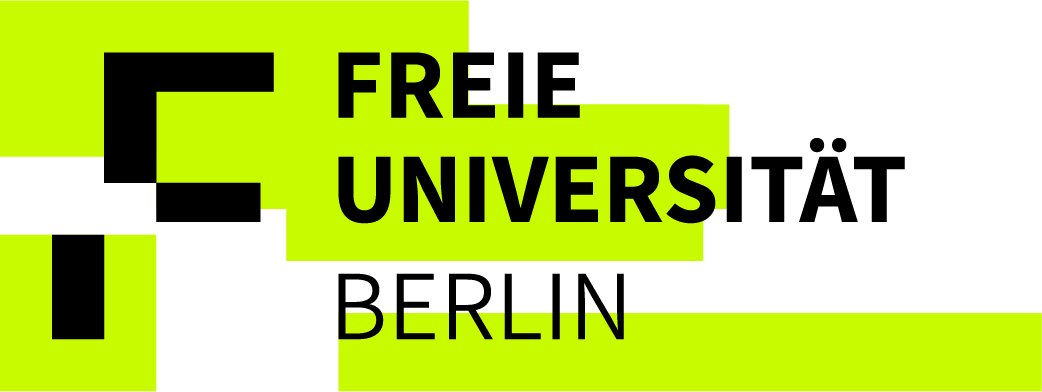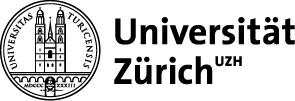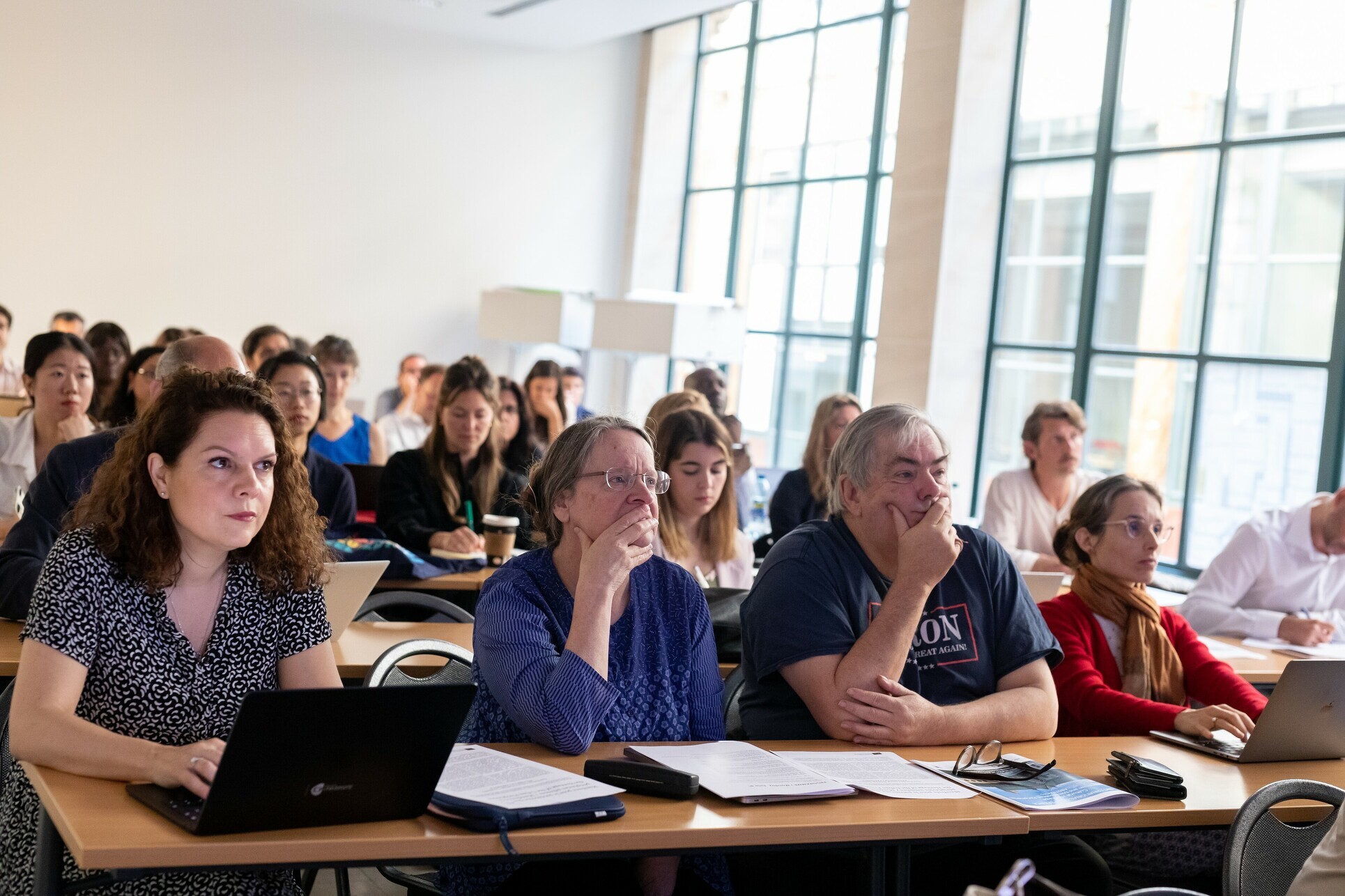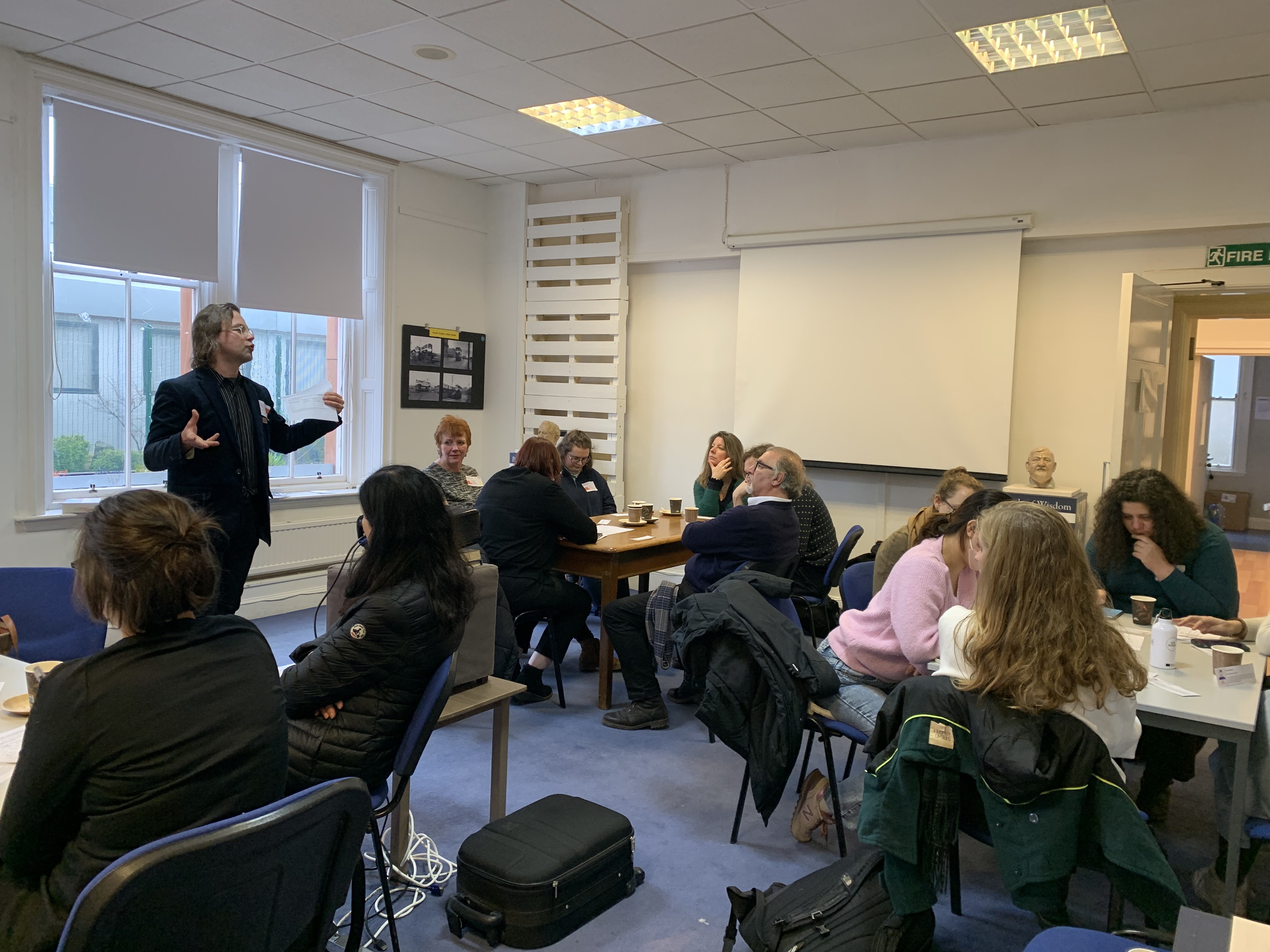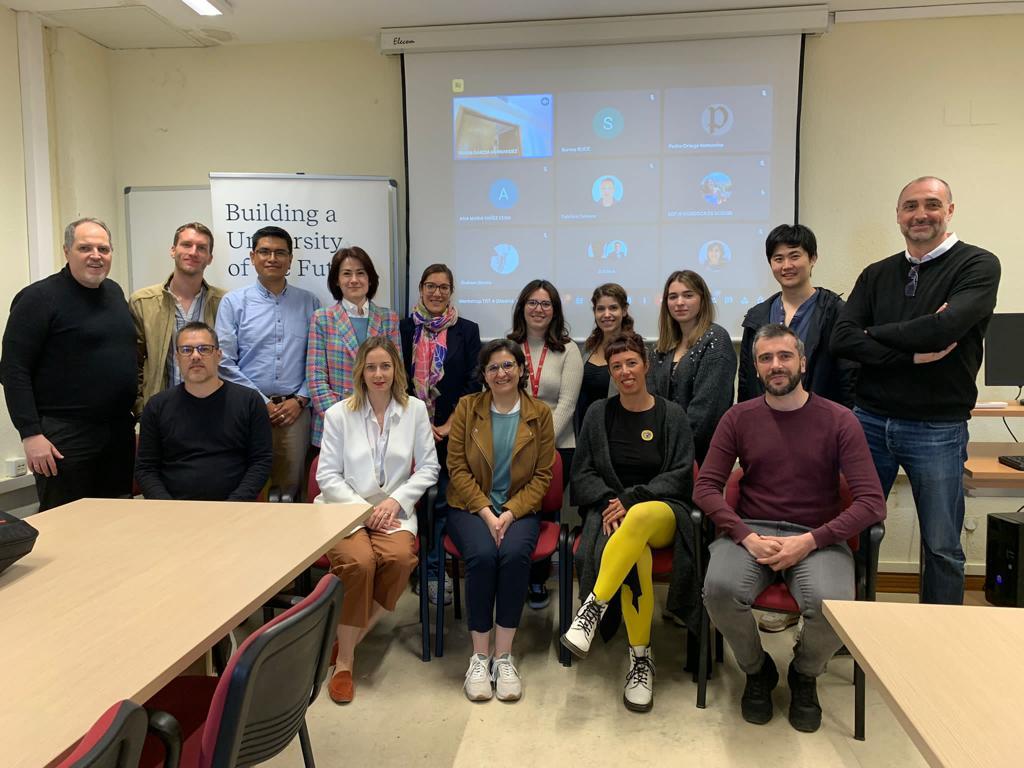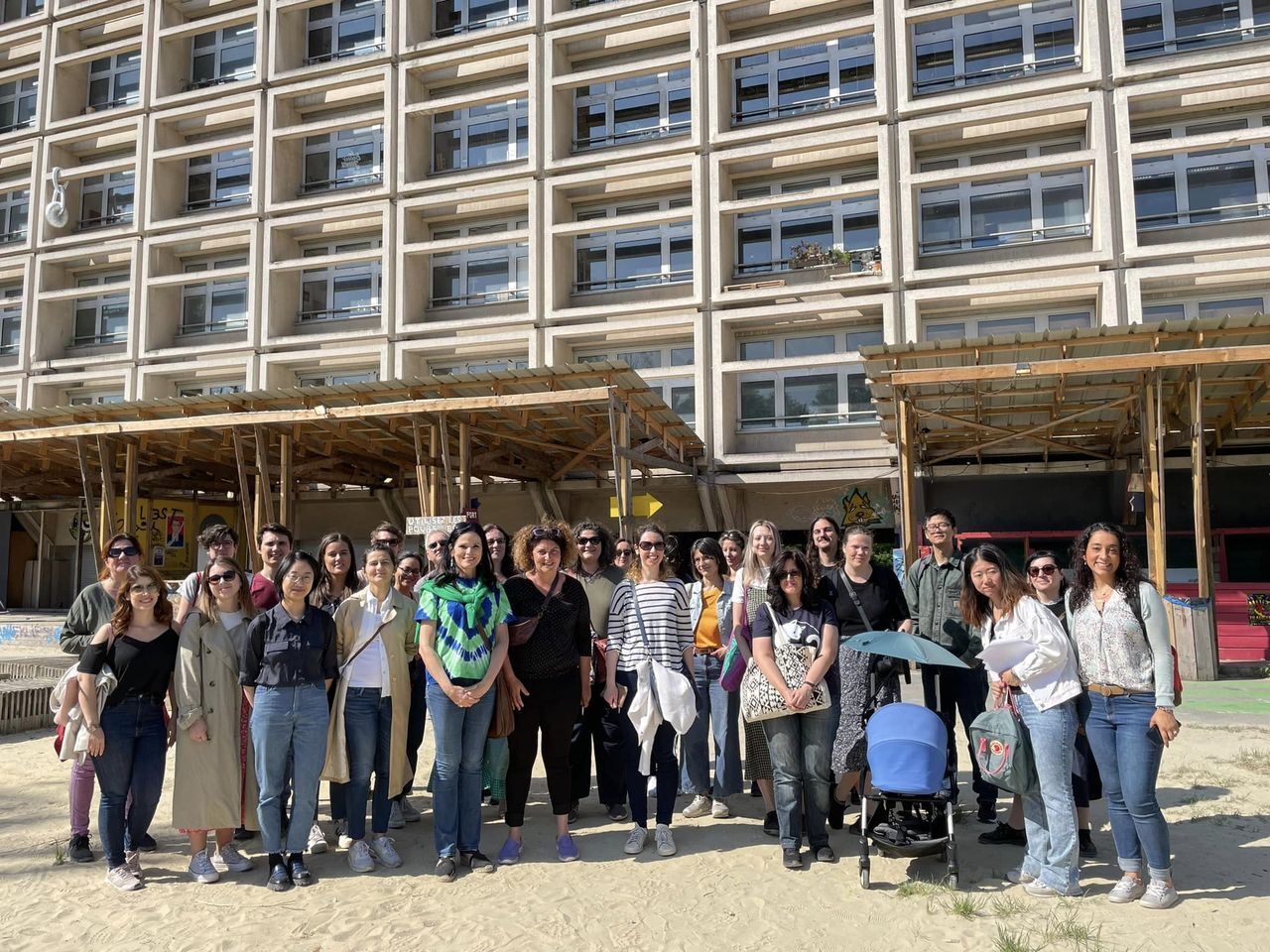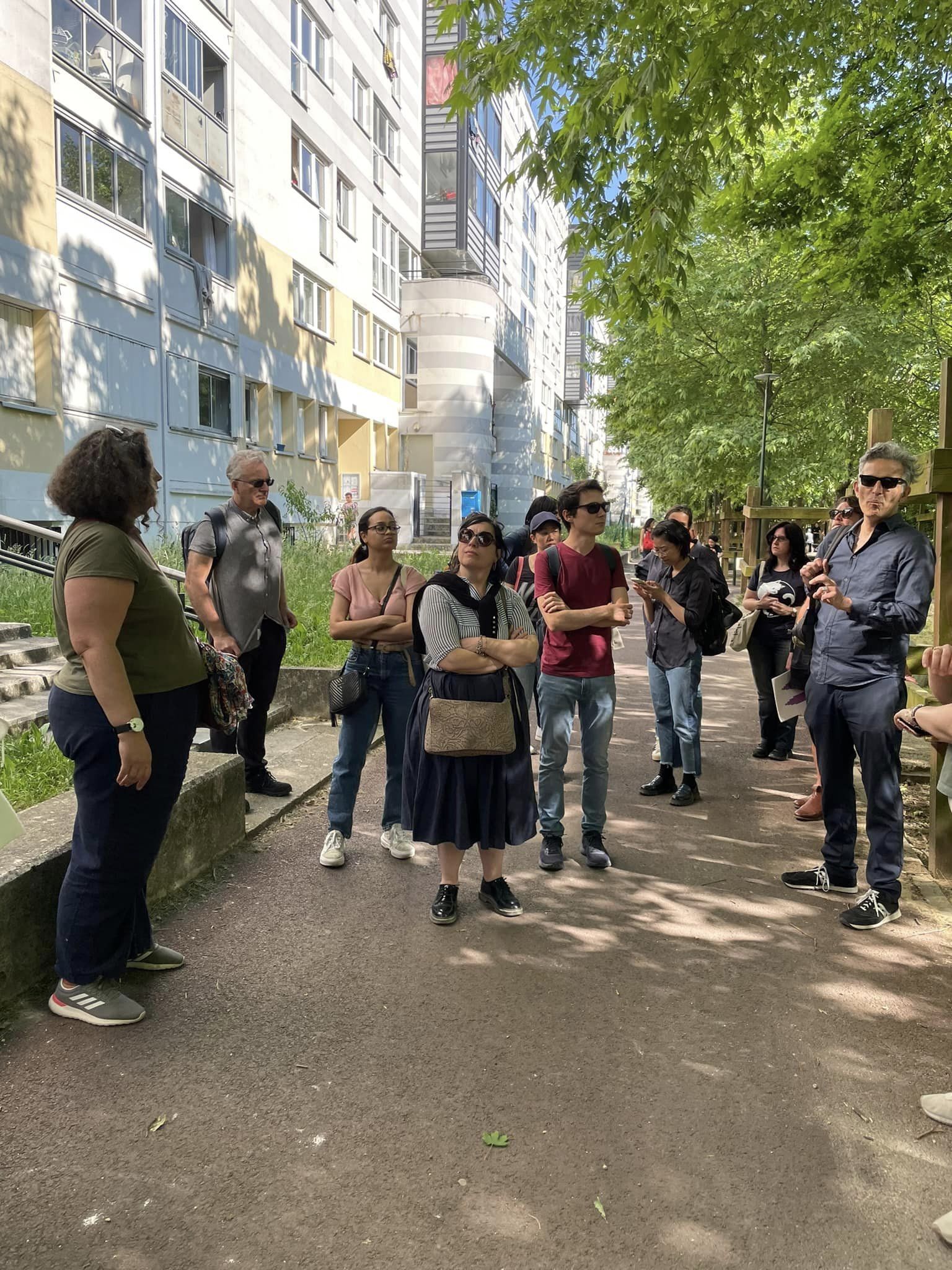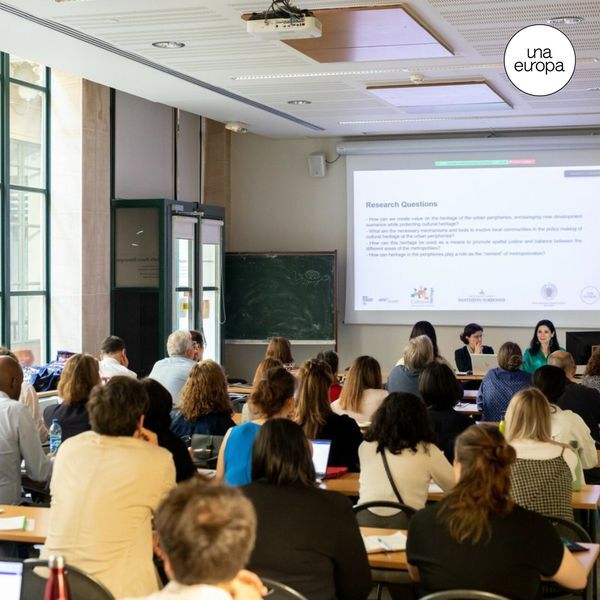Doctoral Programme in Cultural Heritage
Co-developed by
Fields of Research
All the Doctoral candidates are invited to actively participate in seminars and activities of one of four Una Europa Transnational Research Teams in Cultural Heritage (TRTs), which gather professors, researchers and doctoral candidates of Una Europa universities.

Forming the TRTs
In the early stages of our work on Una-Her-Doc programme, we realized that our aim is to move beyond a simple curriculum and to create a place of exchange and regular interaction – a transdisciplinary and transnational ecosystem in Cultural Heritage, consisting not only of professors from Una Europa universities, but also researchers and Una-Her-Doc doctoral candidates of Una Europa Doctoral Program in Cultural Heritage. This ecosystem will also serve as a basis for all our future projects and collaborations in the focus area of Cultural Heritage.
With the objective to operationalize its development, we defined a limited number of initial interdisciplinary CH research themes to serve as a basis for the creation of transnational research teams. The themes and the related teams are conceived as dynamic and moving parts of the ecosystems. They intend to follow and reflect the evolution of the research themes of the professors and doctoral candidates of Una Europa universities, as well as the evolution in the Cultural Heritage field.
In a bottom-up approach – after conducting a thorough mapping of Cultural Heritage research and teaching priorities in in 8 initial Una Europa universities, and having in mind the global trends in the field, namely, 2014 Strategic Research Agenda of the JPI and other EU priorities, we defined the 4 themes below. Furthermore, we launched a call for the expression of interest across our partner universities, and formed 4 groups, gathering today more than 200 Una Europa researchers.
Since 2021/22, these groups have started structuring each theme, its research priorities and activities (preparation of project proposals, creating blogs and websites, organizing meetings, workshops and international conferences). In this context a special place was given to TRTs “get togethers”, organized several times per year, in order to showcase the research of TRT senior researchers and doctoral candidates of Una-Her-Doc.
1. Heritage, global migration and mobility
This research theme aims to highlight the role that migrations and mobilities have played in the past and increasingly play today in the social production of contemporary heritage. It posits that mobilities of populations, ideas, models, and standpoints contribute significantly to the heritagization of artifacts and mentifacts and explores the multiple relationships between migration and heritage. It further advances the hypothesis of a new ‘heritage regime’, which suggests a departure from the dominant understanding of the heritage concept by introducing mobilities and migrations as a major player in contemporary heritagization processes.
Discover more on TRT1.
2. Heritage and the digitization of society
Cultural heritage breathes a new life with digital technologies. The digital revolution is also transforming the ways in which people know, understand, use, and visit heritage sites, opening the way to a ‘new Renaissance’, but also bringing a world of challenges. Segments of communities can be left aside from this revolution, while dissonant narratives and controversial approaches to heritage can also be spread more broadly. One of the greatest challenges in the digitization of society regarding cultural heritage is therefore to bridge the gap in the access to, and ability to master, cultural narratives.
Discover more on TRT2.
3. Heritage and social capital, mutuality and volunteering
Under this theme, we study Cultural Heritage not just as product but also as process. We are interested in how Cultural Heritage is produced and by whom, by co-producing heritage studies together with increasingly diverse communities. Cultural heritage, whether tangible or intangible, is also about process – that curates and creates its assets, transforms and transcends these from cultural to social capital, towards greater well-being, resilience, sustainability and social cohesion. Heritage-as-process produces tensions, too, as flows of power, contested meanings and temporalities in new and existing forms of practice intersect. We wish to harness this in-betweenness of cultural heritage, between being and doing, to work with existing heritages and their (dis-)associated communities towards creating new ones.
Discover more on TRT3.
4. Safeguarding cultural heritage
Cultural Heritage, tangible and intangible, is a resource under threat from natural decay, deliberate destructions, or disinterest, from being undervalued or overexploited. These issues are exaggerated by climate change, social conflicts, migratory dynamics, and the scarce economic and financial support. In this frame, we study the material remains for their characterization, sustainable conservation, and valorisation - and the intangible or dynamic heritages to validate solutions for the protection of knowledge and practice. Thus, the safeguarding of cultural heritage is a research theme that involves many different technical, scientific, social, and economic competences and an interdisciplinary approach to address these holistically.
Discover more on TRT4.
Una Europa Chair in Cultural Heritage
A special impetus to the consolidation of the TRTs was given through a Una Europa Chair in Cultural Heritage. The project that took place from January to June 2023 was coordinated by Paris 1 Panthéon-Sorbonne. Focusing on the cultural heritage of the peripheries, it was an extension of several Una Europa research projects:
- CUTE, a project financed as part of Una Europa's seed funding;
- CUMET, selected as part of the Joint Programming Initiative's call for proposals: "Cultural heritage, society and ethics";
- HUPer,
submitted in 2023 in response to a Horizon Europe Cluster 2 call for
projects, but unfortunately not funded despite the grade of 14/15.
Thanks
to the Chair, held by Professor María García Hernández of the
Universidad Complutense de Madrid, 4 workshops were organized in the
various Una Europa universities on the topics of TRTs, as well as a final conference in Paris.
They brought together various researchers and local stakeholders
(cultural institutions, local administrations, international
organizations, NGOs and other representatives of civil society)
interested in the heritage of urban peripheries.
All these events
consisted not only of presentation of research results, but also of in-depth
fieldwork, experimenting at the same time with innovative methodologies
of collaboration and co-creation with the various stakeholders to better
understand the different local contexts, as well as the challenges and
opportunities of heritage (heritage games, research-action, etc.).
The results of the project will be presented in a publication to be published in 2024.
* Photos taken during the Workshops and the final conference organized in the framework of the Una Europa chair in cultural heritage.


